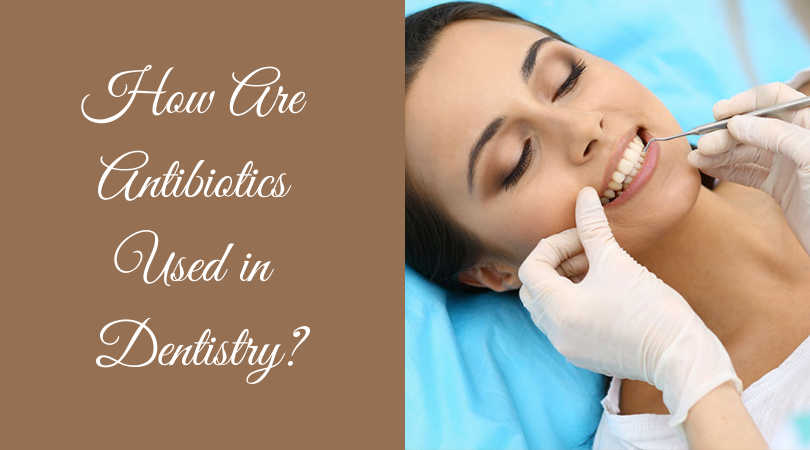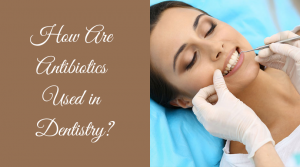 Broad spectrum antibiotics are used in a wide variety of areas of medicine. Dentistry is no exception. This group of drugs helps to stop inflammation and prevent the development of complications of many diseases of the teeth and gums.
Broad spectrum antibiotics are used in a wide variety of areas of medicine. Dentistry is no exception. This group of drugs helps to stop inflammation and prevent the development of complications of many diseases of the teeth and gums.
Why antibiotics are needed in dentistry?
Antibiotics are usually used in dentistry for inflammation of the gums and roots of teeth, with the development of flux, gingivitis, periodontitis and some other diseases that arise against the background of a rapid increase in the activity of pathogenic microflora. Poor quality oral hygiene leads to the proliferation of harmful bacteria, resulting in inflammation.
If you ignore the problem for a long time, the disease can lead to tooth loss. So, for example, in time, untreated caries develops into pulpitis, which eventually becomes chronic and leads to the development of even more severe complications. Antibiotics used in dentistry can stop inflammation, relieve pain, prevent further development of dental disease and save teeth.
Where to buy antibiotics?
There are many ways to buy antibiotics but not many to buy cheap anibiotics. There are online service that offer buying antibiotics at reduced prices but of the same quality. One of such companies is engaged in the sale of cheap antibiotics online of top rank and quality.
The online catalog contains many generic antibiotics that are produced by well-known pharmaceutical companies. The meet all the quality requirements and able to be used in dentistry with almost 100% effect guarantee.
Besides, this online store offers global delivery at the fixed charges. You may either opt for Regular Airmail or Express Courier System. The orders are fast processed and delivered to any address specified durign the ordering. As a result, there is no need to leave your sweet home to buy health-related products.
Features of the drug therapy
The choice of a particular drug depends on a large number of factors, the main of which is the reason why the doctor prescribes this form of therapy. Let’s consider the most common reasons for carrying out such drug therapy, indicating the names of antibiotics used in dentistry.
Antibiotics in dentistry for gum inflammation
This group of drugs is used for gingivitis and periodontitis. In such situations, Metronidazole is usually prescribed in combination with Lincomycin, a stronger osteotropic antibiotic that accumulates in the bone tissue and thereby protects against further spread of inflammation to the jaw bone. The drug is used in the form of tablets or injections.
Antibiotics after tooth extraction
Extraction of teeth is a surgical operation and is inevitably accompanied by trauma to the soft tissues of the gums. To prevent the penetration of infection into the hole of the newly extracted tooth and the further development of inflammation, the doctor may prescribe antibacterial therapy – drugs with powerful anti-inflammatory and analgesic effects: Amoxicillin, Azithromycin or Levomycetin.
Antibiotics with dental abscess
The dental abscess is a kind of abscess under the periosteum, which is accompanied by acute pain and the formation of a pronounced lump on the gum. After opening the bump and removing the pus, dentists usually prescribe a short course of antibiotic therapy to eliminate the risk of infection spreading. In this case, Lincomycin, Levomycetin can be prescribed. The duration of the course and dosages are set individually.
Antibiotics for root inflammation
With the development of inflammatory processes in the roots of the teeth, depulpation is added to antibacterial therapy – removal of the inflamed neurovascular bundle of the tooth, called the pulp. In this case, immediate treatment is required, which will prevent the spread of inflammation to the entire bone tissue. So what antibiotics are used in dentistry for dental root inflammation? In such a situation, Biomycin, Doxycycline are usually prescribed.
Dental implantation
After the installation of implants, there is always a risk of developing inflammation and peri-implantitis – rejection of artificial roots by the body. In order to prevent the appearance of such complications, the doctor prescribes certain drugs, based on the existing clinical picture. At the same time, the medication regimen can be different: before the procedure, during, after implantation, or at each stage of treatment. Only your attending specialist has the right to prescribe such therapy.




